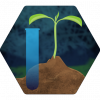Difference between revisions of "Planetary Research"
| Line 3: | Line 3: | ||
</div> | </div> | ||
| − | + | {{planetary research description}} | |
| − | |||
| − | |||
| − | |||
| − | |||
| − | |||
| − | |||
| − | |||
| − | |||
=Sending Scientists= | =Sending Scientists= | ||
Revision as of 08:45, 12 July 2018
Planetary Research is a type of research that is unlocked after destroying six planets.
By sending a Scientist to the current planet, the player can gather soil samples that will give random bonuses until the current planet is destroyed. On certain planets, gathering soil samples also has a chance to yield Minerals that give permanent bonuses.
Soil samples can be gathered up to 5 times per planet and their effects are multiplicative.
After entering a Black Hole, the bonus from Planetary Research for the current planet is lost and the limit on gathering soil samples is reset.
In the Planetary Research Lab, only one action can be active at a time — either gathering soil samples or travelling to/from planets.
Sending Scientists
Scientists take 1 hour to travel to their destination. Planetary research is unavailable while Scientists are travelling.
Travelling speed is not influenced by the reduced research time effect, but it can be halved by researching the Scout technology in the Dark Matter Institute. The current travel time can also be reduced from one of the Red Bacteria rewards.
By paying some diamonds, it is possible to instantly send Scientists to their destination. The price depends on the remaining travel time and the initial price is ![]() 10.
10.
When going to the current planet, Scientists can travel alone or several at a time. When returning from a planet, Scientists can only travel all together.
All Scientists instantaneously return to the player automatically:
- upon destroying the current planet
- upon entering a Black Hole
In all other instances the Scientists will remain on the current planet until the player orders them to return.
Research Time
Research time depends on how many Scientists are on the planet and it is influenced by the reduced research time effect.
Research can also be completed instantly by paying some diamonds.
| Scientists | Base Duration |
|---|---|
| 24:00:00 | |
| 18:00:00 | |
| 15:00:00 | |
| 13:00:00 | |
| 12:00:00 | |
| 11:00:00 | |
| 10:00:00 | |
| 9:00:00 |
Planetary Discoveries
Every time the player completes gathering soil samples, he discovers a boost for the current planet.
Each discovery effect has an equal chance of being selected. The player can have up to five discoveries for the current planet. This can be increased through Sleeper Agents.
The effect of Planetary Discoveries that provide a BPS or BPC bonus can be increased via other Dark Matter Institute technologies.
| Discovery Effect | Min Value | Max Value |
|---|---|---|
| Increased Nanobot Strength | +25% | +75% |
| Increased BPS | +500% | +5 000% |
| Increased BPC | +500% | +5 000% |
| Reduced Bacteria Needed | +500% | +2 500% |
NB! The increase to BPS from Planetary discoveries does not increase BPC, even if the player has an upgrade that converts a percentage of BPS to BPC.
Finding Minerals
On most planets, there is a chance to find a Mineral whenever a Scientist completes gathering soil samples.
Main page: Minerals
